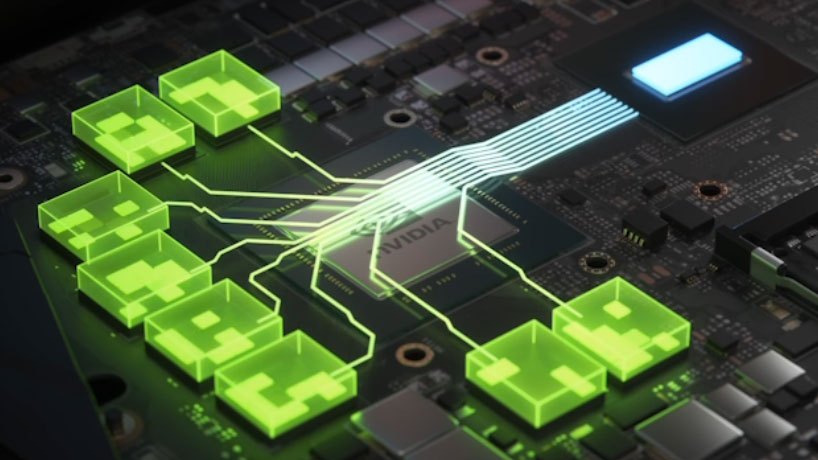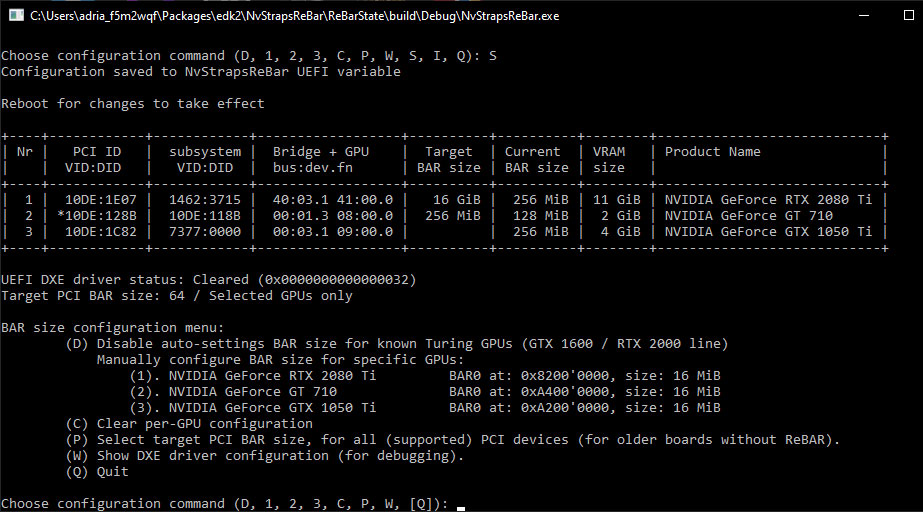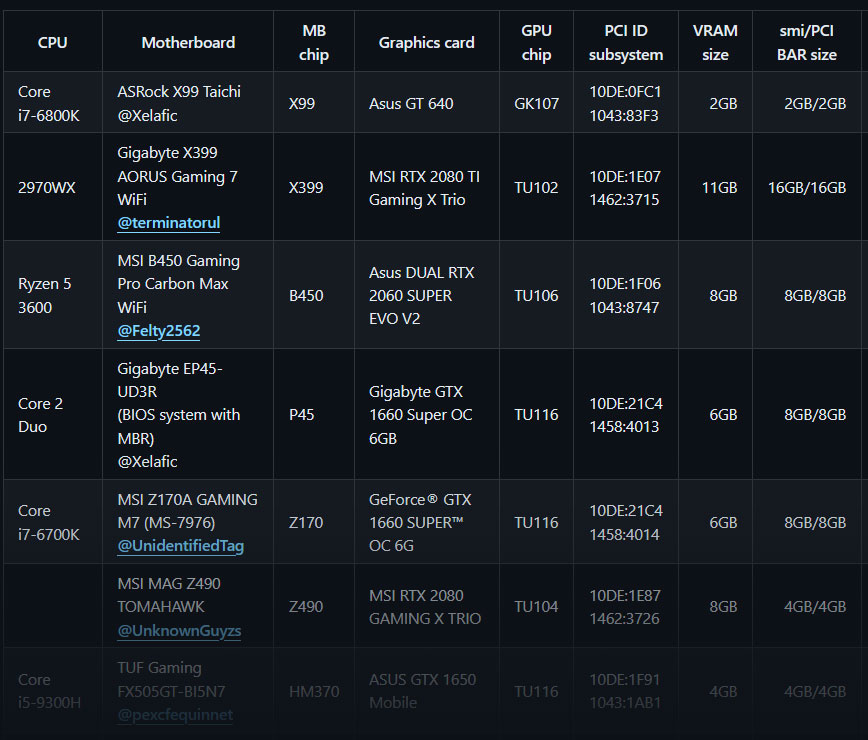
Developer terminatorul has shared a UEFI driver to enable ReBAR (Resizable Base Address Register) on systems packing Nvidia Turing architecture graphics cards. Owners of GeForce GTX 16- and RTX 20-series GPUs were shut out from using ReBAR until now.
NvStrapsReBar patches your motherboard's UEFI firmware to set the BAR size. It can be set to auto-configure or adjusted manually. However, frequently rewriting data to the firmware isn't without risks. The developer explains that ReBAR is usually enabled via a vBIOS update, but an independent hack can't work this way because Nvidia digitally signs and encrypts its graphics cards' VBIOS.
The new NvStrapsReBar third-party UEFI driver is currently only intended for power users and tinkerers, as there is a small but significant risk of motherboard bricking. We also advise potential users to look at the scale of potential gains in the games they might be running with ReBAR active — it doesn't always deliver a benefit.


AMD democratized ReBAR under the banner of Smart Access Memory (SAM) with the introduction of its Zen 3 Ryzen 5000-series CPUs and RDNA 2 RX 6000-series GPUs back in 2020. It was a feature that has technically existed since PCIe Gen 2.0, but the PC industry largely ignored it. Once SAM was publicized, alongside some worthwhile performance gains, we started to get wider industry ReBAR support.
Nvidia eventually offered an RTX 30-series patch to add ReBAR support, and the RTX 40-series has had it since launch, but it neglected earlier GeForce series. It's potentially nice to get some level of support, at least unofficially, for these still useful Turing gaming GPUs. There remain some technical reasons why the NvStrapsReBar mod doesn't extend support to GTX 10-series Pascal Nvidia graphics cards — the developer did try.
The essence of ReBAR is that it allows the drivers and system to optimize resources. Previously it was set-and-forget at a VRAM chunk size of 256MB, but modern systems can do much better. ReBAR isn't a sure-fire performance improvement in every game / app, though. Testing on Radeon GPUs reveals gains between 5% and 24% in specific titles, but there are cases where it doesn't deliver any benefits at all, or might even degrade performance. Hence, AMD and Nvidia have Resizable Bar profiles for each game. Intel's Arc A-GPUs should always have ReBAR enabled, according to Intel.
If you're interested in trying ReBAR with your Turing GPU, please carefully follow the instructions provided by terminatorul. You can also check here for a comforting list of reportedly working CPU / motherboard / graphics card combos.







